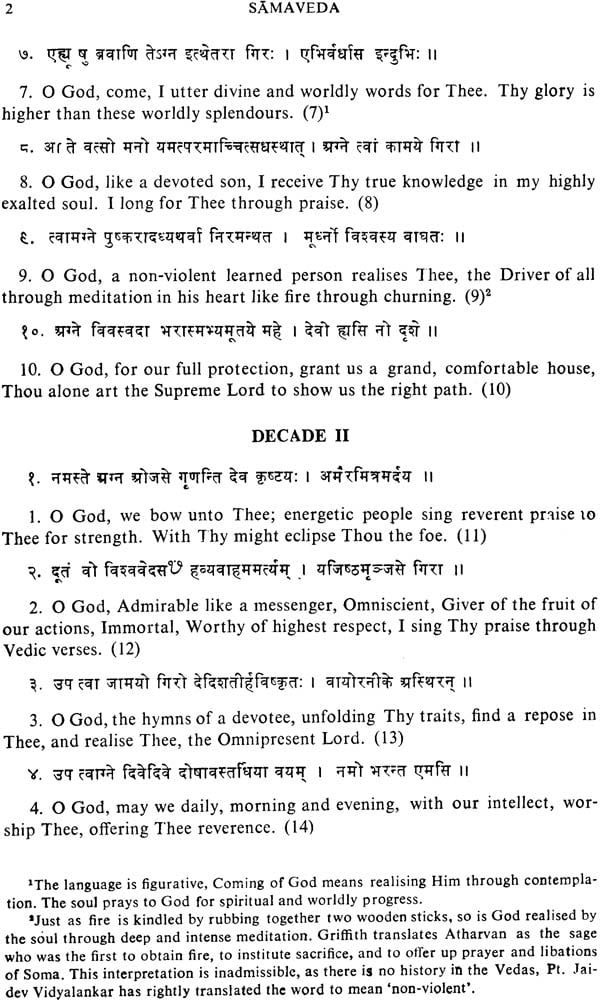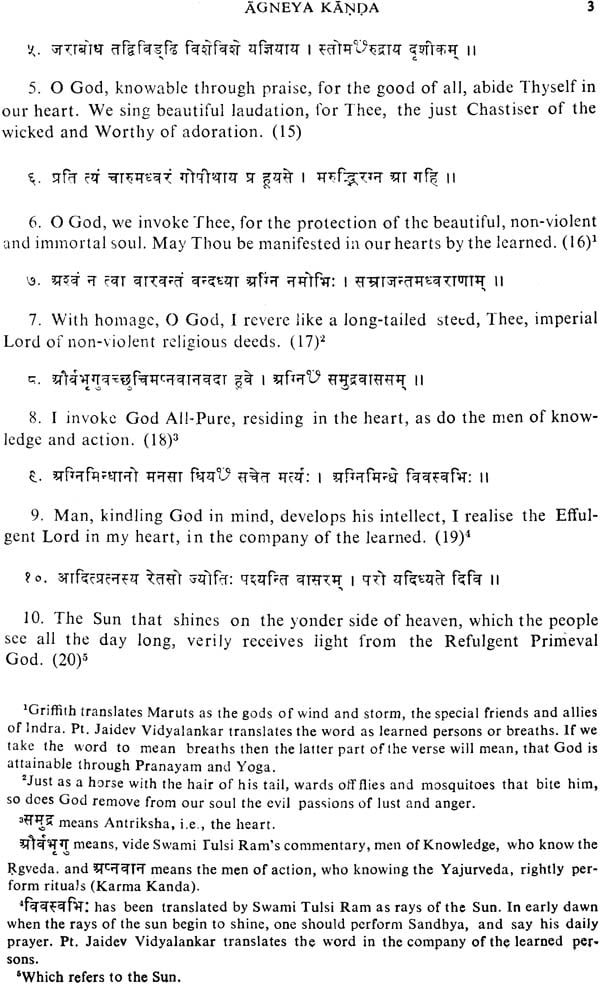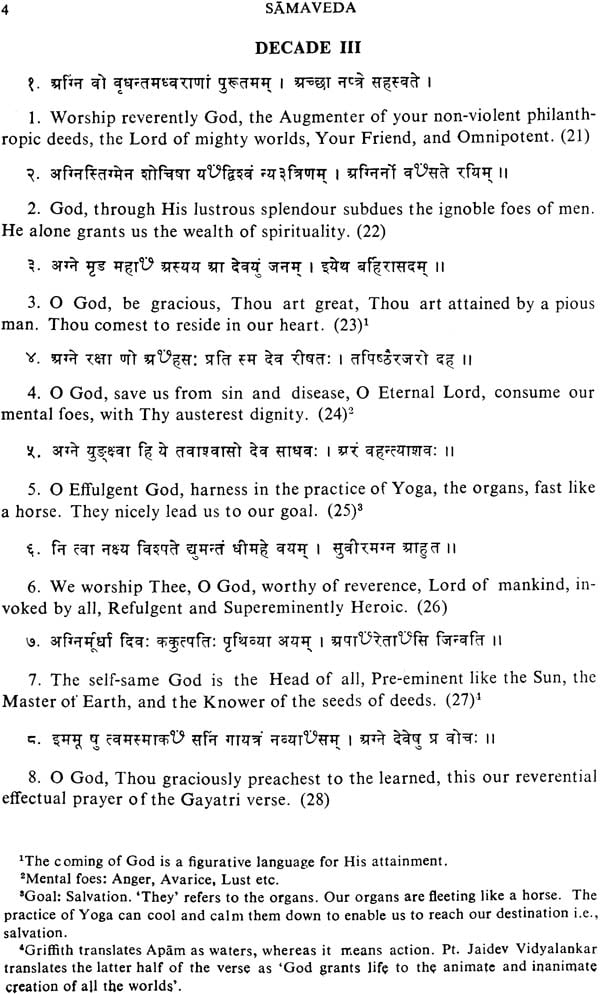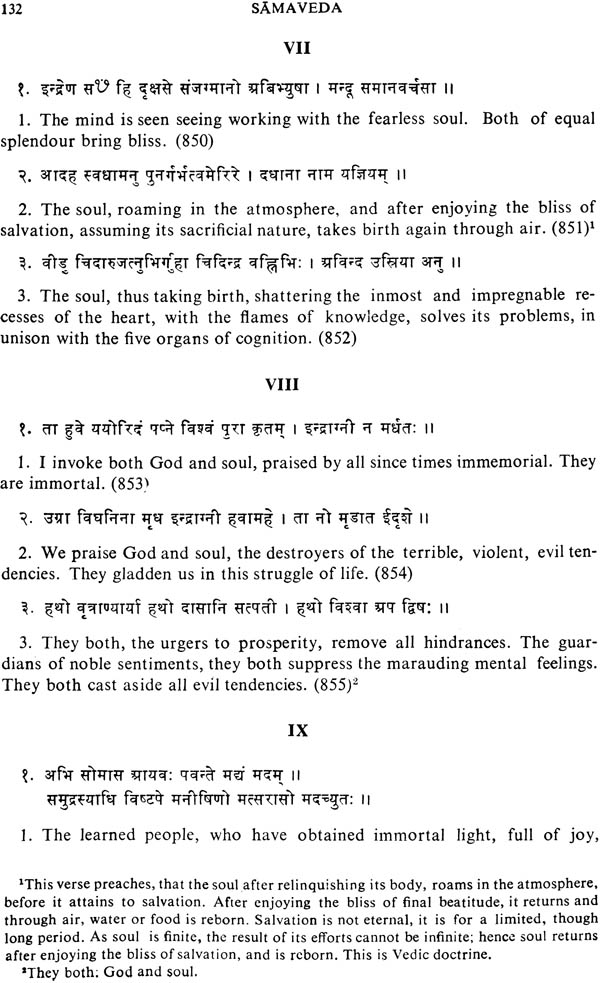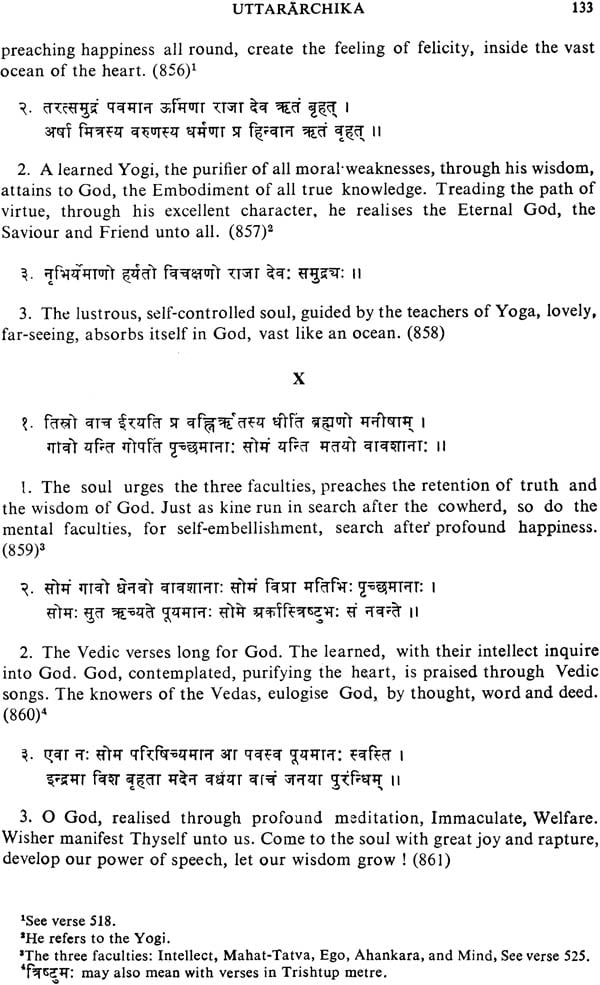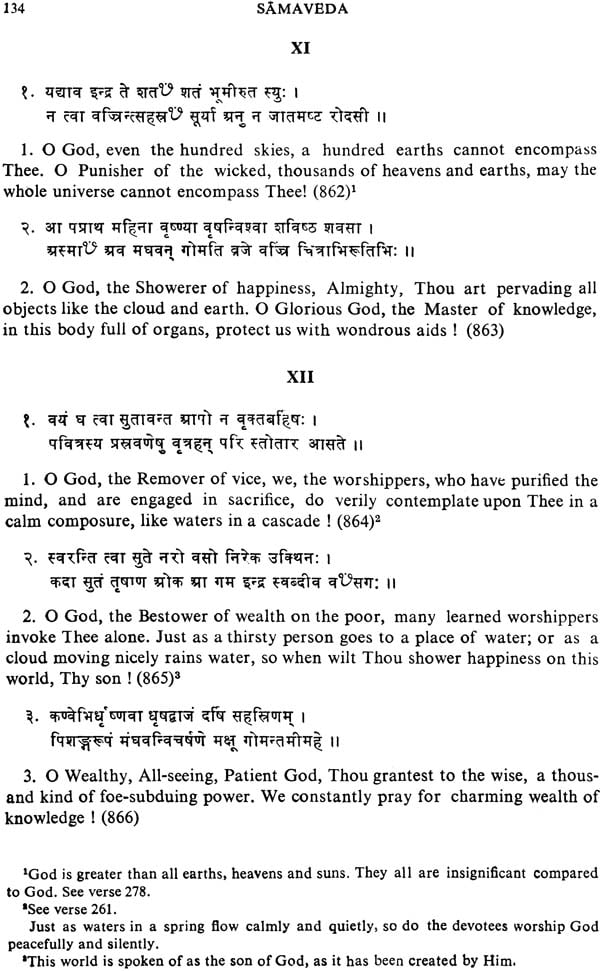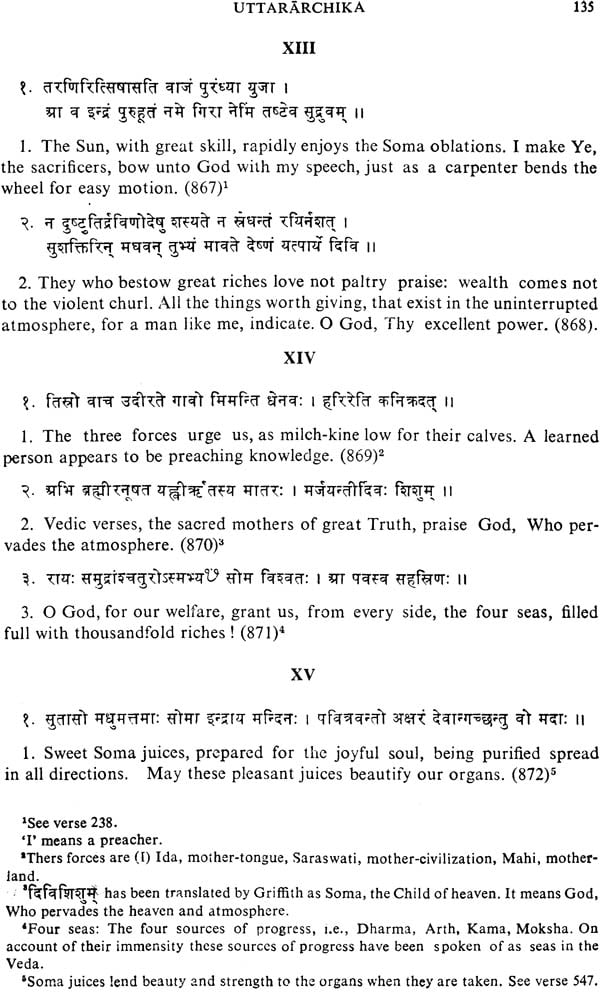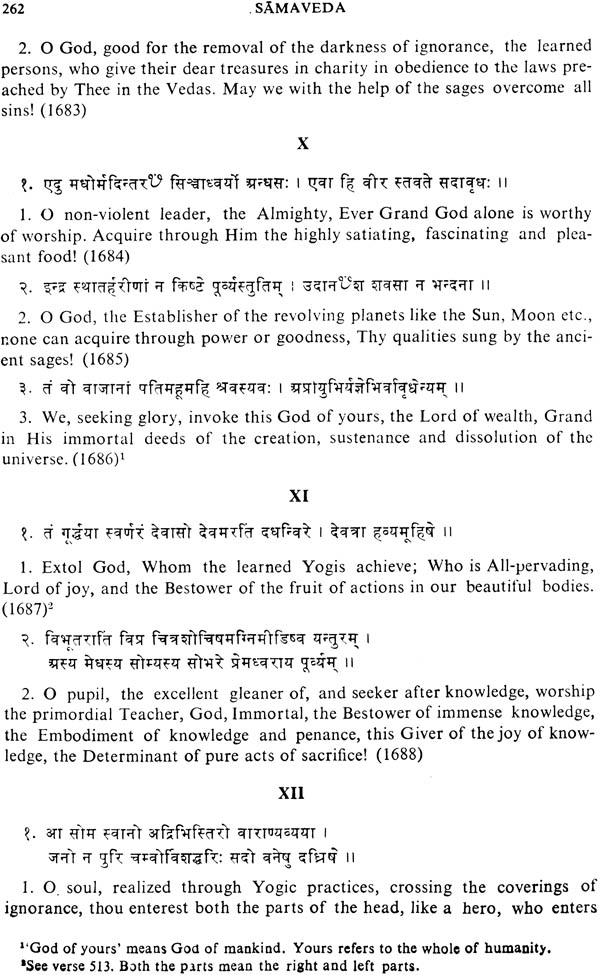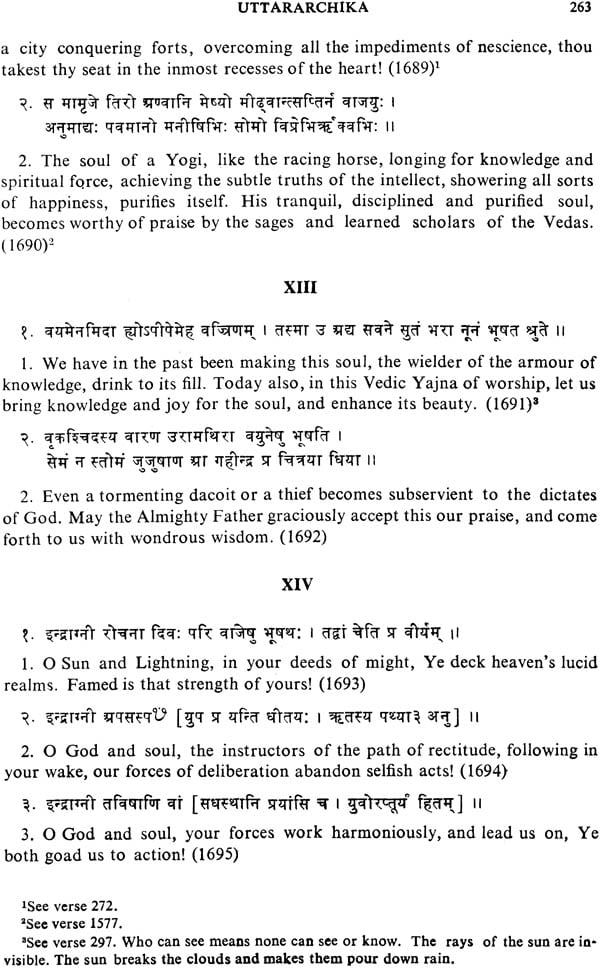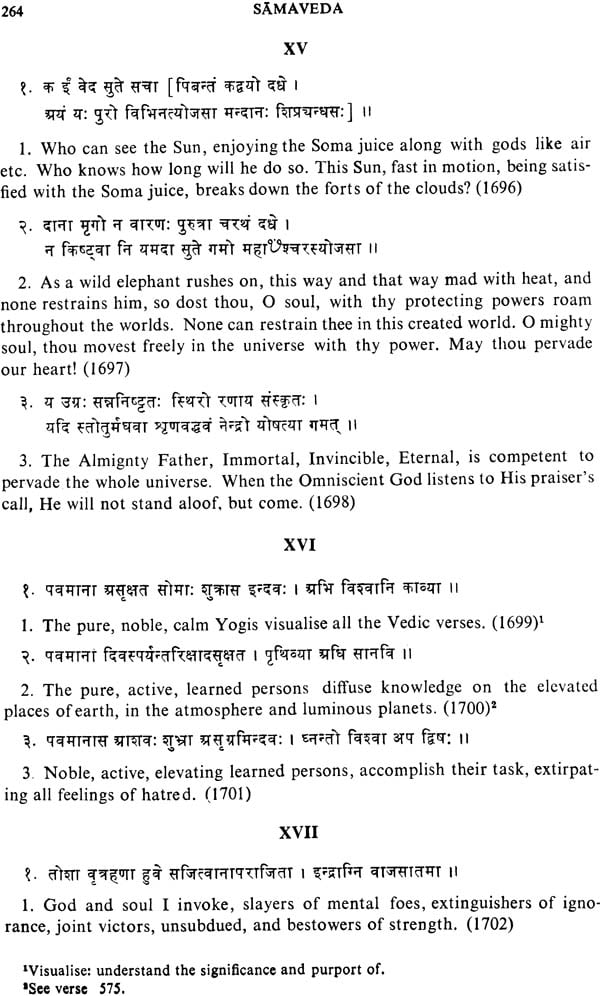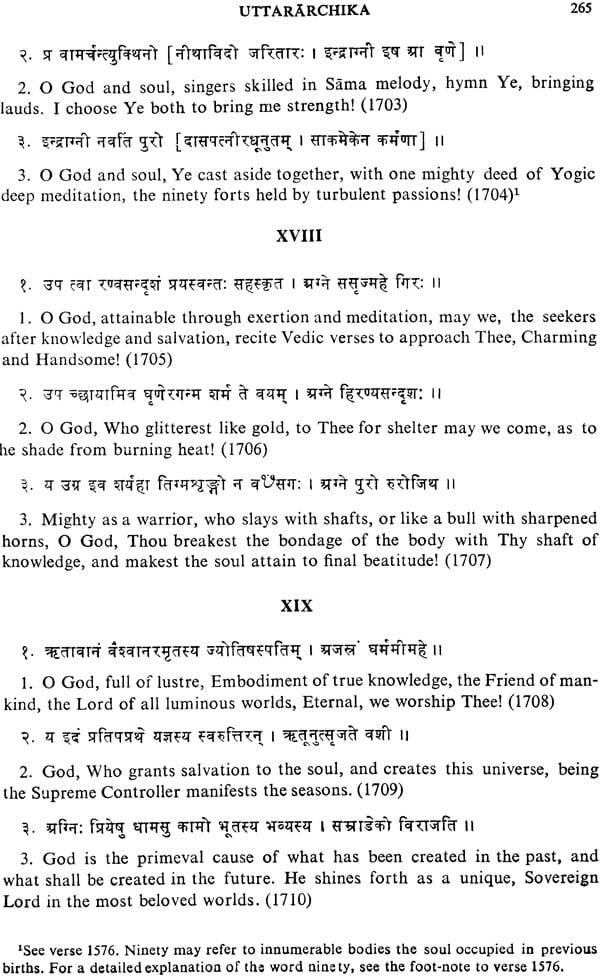
THE SAMAVEDA
Book Specification
| Item Code: | ISL80 |
| Author: | English Trans by. Devi Chand |
| Publisher: | Munshiram Manoharlal Publishers Pvt. Ltd. |
| Language: | (Sanskrit text with English translation) |
| Edition: | 2004 |
| ISBN: | 9788121501996 |
| Pages: | 332 |
| Cover: | Hardcover |
| Other Details | 9.8" X 6.5" |
| Weight | 660 gm |
Book Description
About the Book:
The verses of Samaveda, all except 78, are taken from the Rigveda. They are arranged in a sequence different from that of the Rgveda and divided into two parts. The first part, called Purvarcika has 589 verses; the second, called Uttararcika, has 1225 stanzas. The hymns are invocation addressed to Soma, Agni and Indra meant for chanting by Udgatr priests at Soma sacrifices and not devoted chiefly to the worship of Indra who is a blustering braggadocio god and who has to befuddle himself with Soma in order to slay demons as a reputed scholar put it. Due to its special references to Pitrs or deceased forefathers, the sound of the Somans are considered by some as impure.
This edition of Samaveda, a translation by Devi Chand, is based on the exposition of Swami Dayanand. The translator has furnished references in the foot notes to different interpretations of Indian and foreign scholars. An introduction and glossary-cum-index are added for the benefit of those not acquainted with Samaveda. Everyone shall find this an excellent book for a thorough understanding of the Samaveda.
The Samveda like the other three Vedas is the word of God revealed in the beginning of creation for the moral spiritual economic and physical guidance and uplift of humanity.
God is infinite the soul is finite in knowledge. The finite soul cannot contain the infinite knowledge of God, God creates sustains and dissolves the world. Whenever the world is created God reveals the Vedas. This process is going on since eternity and will go on for ever.
There are 1875 verses in the Samaveda. It is a Veda primarily of devotion worship and contemplation highly essential for the attainment of God. That is why Lord Krishna says in the 10th Chapters of Gita of the Vedas I am the samaveda. This Veda is divided into three parts (1) Purva Archika (2) Uttar Archika (3) Maha Namni Archika, Purva Archika is divided into four parts (1) Agneya Kanda (2) Aindra Kanda (3) Pavmana Kanda (4) Aranyaka Kanda these four Kandas are divided further into six Prapathaks. According to Sayana these Kandas are divided into five Adhyayas. Prapathaks contain Ardh Prapathaks and Dashtis Adhyayas contain Khandas.
In Uttar Archika there are 21 Adhyayas and 9 Prapathakas which are further sub divided into Ardhprapathakas. There are no Dashtis in the Uttar Archika but there are only ten verses. This division is a bit complicated. Some commentators like Swami Tulsi Ram and pandit Jaidev Vidyalankar for the facility of the readers have numbered each verse. I have followed this practice showing the prapthak as book Ardh prapathak as chapter and Dashti as Decade.
Some scholars are of opinion that Samaveda has got only 75 verses of its own and the rest are taken from the Rigveda. This notion is erroneous. The Samaveda is an independent Veda by itself like the other three Vedas. Their view can be correct only in case the aim of the Rigveda and the Samaveda be one and the same. The Rigveda deals with knowledge the Samaveda with Upasana worship and contemplation. The same verse coveys in the Rigveda a sense pertaining to knowledge and in the Samaveda to prayer and worship. A verse can have different meanings according to its different devatas. The identity of a verse at different places does not connote repition. Difference in significance according to change in the devata makes the verse independent. Maharshi Dayanand has dealt with the subject in the Rigveda Adi Bhashya Bhumika at length.
In singing the verses are still further altered in meaning by prolongations insertion of syllabus and various modulations rests and other modifications prescribed for the guidance of the reciters. In Purva Archika there are two song manuals the Gramageyagana or congregational and the Aranyagana which the recluse and seekers after salvation sing in forest solitude. In Uttar Archika there are two song manuals the Uhagana and Uhyagana. For details one should study the Naradi Siksha and Raga Vibodha.
All the ancient commentaries on the samaveda are not extent at the present time. Shri Dev Raj Yajwa in his commentary on Nighantu has given the names of eight commentators (1) Skand Swami (2) Bhav Swami (3) Rabdeva (4) Shri Niwas (5) Madhav Deva (6) Uvat Bhatta (7) Bhaskra Misra (8) Bharta Swami.
| Introductory Remarks | vii |
| Introduction | xiii |
| Text and Translation | 1 |
| Glossary and Index | 296 |

